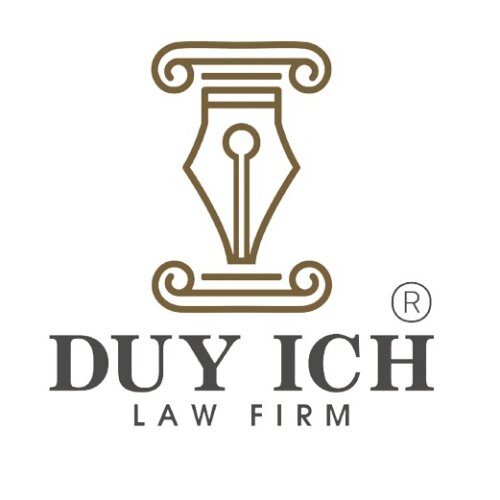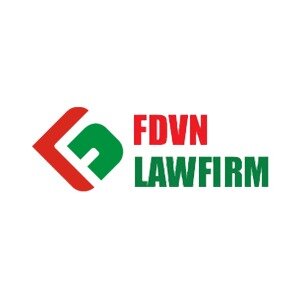Best Faith-Based Law Lawyers in Da Nang
Share your needs with us, get contacted by law firms.
Free. Takes 2 min.
List of the best lawyers in Da Nang, Vietnam
About Faith-Based Law in Da Nang, Vietnam
Faith-Based Law in Da Nang, Vietnam, represents a unique intersection between religious beliefs and legal frameworks. This area of law seeks to accommodate the diverse religious practices of Vietnam's multi-faith population while ensuring compliance with national and local legal standards. It incorporates elements from various religious laws, adapting them within the context of Vietnamese society, which is predominantly influenced by Buddhism, Catholicism, and indigenous beliefs. Faith-Based Law may cover matters related to religious institutions, events, ceremonies, and individual rights to religious expression.
Why You May Need a Lawyer
Individuals may require legal assistance in Faith-Based Law for several reasons:
- Resolving disputes involving religious teachings and secular laws.
- Ensuring religious practices comply with local regulations.
- Assisting religious organizations with legal matters, including property and employment disputes.
- Interpreting how religious laws apply within the Vietnamese legal context.
- Protecting individuals’ rights to practice their faith freely and without discrimination.
Local Laws Overview
In Da Nang, Faith-Based Law is influenced by both local and national laws which aim to respect religious freedom while maintaining public order. Key aspects include:
- Religious Freedom: Protected under Vietnamese law, yet subject to various administrative controls.
- Religious Organizations: Must register with local authorities and follow regulations concerning the establishment and operation of places of worship.
- Public Order: Religious activities must not disrupt social order or discriminate against other beliefs.
- Customary Practices: Recognized and sometimes integrated into civil law as long as they do not conflict with national regulations.
Frequently Asked Questions
What is Faith-Based Law?
Faith-Based Law refers to legal practices related to religious beliefs, customs, and practices, interpreted within the broader context of national and local laws.
Is religious freedom guaranteed in Da Nang?
Yes, the freedom to practice religion is guaranteed by the government; however, religious activities must adhere to Vietnamese laws and regulations.
Can religious institutions own property in Da Nang?
Religious institutions can own property but must comply with regulations, including registration and reporting requirements.
How are disputes between religious organizations and local authorities resolved?
Such disputes are typically resolved through negotiations, mediation, or legal proceedings when necessary.
What role do lawyers play in faith-based legal matters?
Lawyers provide legal guidance to ensure compliance with laws, represent clients in legal matters relating to their faith, and help resolve disputes.
How can individuals protect their religious rights?
Individuals can protect their religious rights by understanding their legal rights, seeking legal advice when necessary, and utilizing available legal and governmental resources.
What should I do if a religious practice conflicts with secular law?
You should seek legal advice to understand the implications and explore legal avenues to resolve the conflict.
Are there specific laws for different religions in Vietnam?
No, there are no separate laws for different religions; all must comply with national and local legal frameworks.
Can a legal decision be influenced by religious laws?
Legal decisions are primarily based on secular law, but courts may consider religious laws for context in certain cases.
Is mediation available for faith-based disputes?
Yes, mediation is often encouraged as a means to resolve disputes amicably, especially those involving sensitive religious topics.
Additional Resources
The following resources may be helpful for those seeking advice in Faith-Based Law:
- Vietnamese Ministry of Justice: Offers information on national laws and legal assistance.
- Local Legal Aid Centers: Provide free or low-cost legal advice to eligible individuals.
- Interfaith Dialogue Organizations: Promote understanding and cooperation between different religious groups, potentially offering mediation services.
Next Steps
If you require legal assistance in Faith-Based Law, here are some suggested steps:
- Identify the specific legal issue you face and gather all relevant documents.
- Research qualified lawyers or law firms in Da Nang with experience in faith-based legal matters.
- Schedule consultations to discuss your situation and receive professional legal advice.
- Ensure your chosen lawyer understands both the legal and religious nuances of your case.
- Regularly communicate with your lawyer to remain informed about the progress and developments of your case.
Lawzana helps you find the best lawyers and law firms in Da Nang through a curated and pre-screened list of qualified legal professionals. Our platform offers rankings and detailed profiles of attorneys and law firms, allowing you to compare based on practice areas, including Faith-Based Law, experience, and client feedback.
Each profile includes a description of the firm's areas of practice, client reviews, team members and partners, year of establishment, spoken languages, office locations, contact information, social media presence, and any published articles or resources. Most firms on our platform speak English and are experienced in both local and international legal matters.
Get a quote from top-rated law firms in Da Nang, Vietnam — quickly, securely, and without unnecessary hassle.
Disclaimer:
The information provided on this page is for general informational purposes only and does not constitute legal advice. While we strive to ensure the accuracy and relevance of the content, legal information may change over time, and interpretations of the law can vary. You should always consult with a qualified legal professional for advice specific to your situation.
We disclaim all liability for actions taken or not taken based on the content of this page. If you believe any information is incorrect or outdated, please contact us, and we will review and update it where appropriate.











